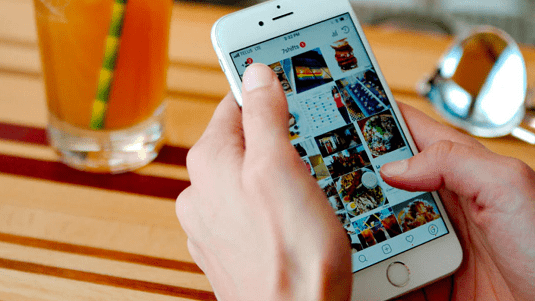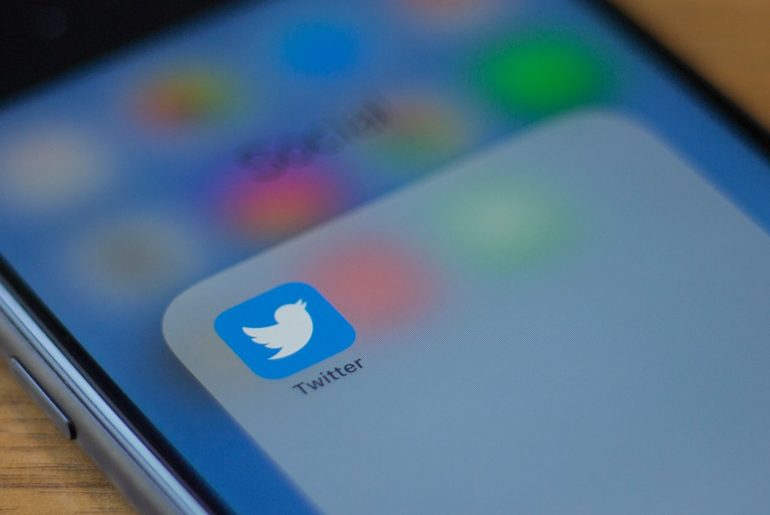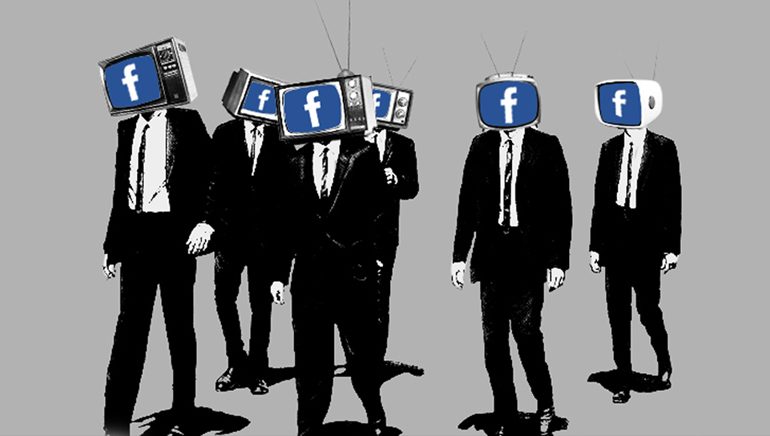Sourced from Intelligencer
Rashad Robinson, who has helped organize a high-profile advertising boycott of Facebook during the month of July, believes the social-media giant doesn’t really care about getting rid of hate on its platform. On the latest episode of New York’s Pivot Podcast, Kara Swisher and Scott Galloway talk to Robinson, who has helped spearhead the effort, about the gap between the company’s rhetoric and its actions.
Kara Swisher: Rashad Robinson is the executive director of Color of Change, the country’s largest racial-justice organization. Last week, he was part of a meeting with Facebook executives about the July ad boycott of Facebook, to discuss the demands he and those companies have made to the social-media platform. Mark Zuckerberg and Sheryl Sandberg were on the call, and he was not impressed by Zuckerberg’s performance. So Rashad, why don’t you give us a rundown of what happened.
Rashad Robinson: Before the meeting, we had shared the list of demands again, and the demands are not complicated. They’d been part of ongoing meetings and protests. Some of them have been highlighted in previous versions of the civil-rights audit that have come out over the past year and a half, two years. So we got there really with the goal of having them tell us what they thought and where they were heading, because they actually requested the meeting.
And you know, I’ve been in a lot of meetings with Facebook. I’m going to meetings with a lot of corporations, and they get trained on how to run out the clock. They have these strategies on how to have a meeting where they get you to talk a lot and then they don’t actually have to tell you anything new. And so I took the lead. I really sort of pushed him, like, “Hey, you’ve got the demands. We actually want to go through them.”
Robinson: So one is bringing in a C-suite civil-rights leader that has the budget and the ability to oversee and weigh in on product and new policy. Another was specifically to deal with their political-exemption policy and the way they talk out of both sides of their mouth.
On one hand, they’ll say there’s a political exemption, but they don’t really use it, and no one ever gets exempted. And then Donald Trump will get exempted. And then they’ll say, “Well, that’s because he didn’t violate the policy,” but they can’t ever tell you when he will violate the policy. It’s just like you’re talking in circles. That’s just another example of how you end up with the situation where we have spent years working on getting rules in place only for them to not enforce them when it actually matters.
And so I wanted them to go through this. My last meeting with Mark and Sheryl was on June 1, right after the “looters and shooters” post, right after those posts around voter suppression, where I, at the end of the meeting, was like, “What are we doing here? Why are we continuing to meet if I don’t feel like anything’s happening and if you’re trying to just explain to us why you’re working hard?” They spent a lot of time in the meeting telling us why they’re doing more than all the other social-media platforms.
Swisher: They’ve gone around to advertisers and said that too.
Robinson: They’re so much better. They’re working so much harder. They have done things that other folks won’t do. This is the kind of constant line. At some point, someone in the meeting said, “So, I guess what you’re saying is that you’re doing everything right and that we’re just crazy.” They’re like, “No, no, that’s not what we’re saying.” I’m like, “Well, what are you saying?”
Swisher: Their own audit said exactly what you were saying, which was that they have created a really dangerous situation by favoring their version of free speech over civil rights. Why do you think that is? You have spent time with them. If you were them, what would you do to fix their structure?
Robinson: I would separate the decisions about moderation and content from his global policy shop. There is not a scenario moving forward where Joel Kaplan overseeing this is going to be fine with anyone. If Zuckerberg replaces Joel Kaplan with someone else that has to oversee their relationships in Washington, other folks are not going to be comfortable with that.
The fact of the matter is if these decisions are made through the lens of how to keep policy-makers and policy leaders happy, then you’ve actually violated one of the tenets of fermenting connection, because you are making decisions rooted in keeping powerful people and powerful forces comfortable and happy. It happens here in the United States, and we have a particular experience with it. But folks in other parts of the world have a different experience, where protests might be illegal, where speaking out might be illegal. The fact of the matter is that Facebook will tell us one thing about their intentions, but every single decision is rooted in profit and growth. Every single decision is through that lens.
Galloway: 100 percent.
Robinson: And so in order to keep profit and growth going, they actually have to stay friends with those in power.
Swisher: This is Scott’s opening, because this is one of the main points he makes all the time.
Galloway: First off, kudos to you and Color of Change. I was really skeptical that this boycott was going to have any impact, but it’s had more impact than almost any other effort I can see today. So first off, well done. Secondly, quite frankly, I’m not sure it’s going to do anything. Let’s speculate that if you call on Facebook’s better angels, that no one’s home — and that you have to move back to applying financial pressure. Can you give us a sense of the state of the boycott and how you put pressure on the better angels of the people at organizations that spend money on Facebook?
Robinson: I think financial pressure is important as well as hopefully changing the political levers in Washington. That to me is the long game, because even this type of effort feels like something that we just can’t be constantly doing, going against the largest advertising platform the world has ever known. It just can’t simply be about asking advertisers to walk away. I’ve had a lot of conversation with advertisers, a lot of conversations recently with the Madison Avenue firms who manage advertisers, trying to continue to get a pulse of where folks are at. I think one thing that’s been really helpful here is that this conversation has trickled up to the board level at a lot of companies.
I also think that some of the things that Mark has said about advertisers coming back, some of the flip ways he has responded to this — it’s one thing for Mark to call us weak, for us to say he doesn’t have to think about what we are demanding. But you know, a bunch of corporate CEOs, at what point are you all going to stand up? At what point are you going to say that you’re not going to let this person walk all over you? I think that has been part of Facebook’s missteps. They have stepped on the ego of a lot of folks who have ego and who don’t want to be treated like that they’re not valuable or their opinions don’t matter.
Swisher: One of the things is they don’t like Facebook. You can talk to most of them — they tolerate it because they need it, because it’s the only game in town.
So, two things I’d love to know. What do you think the impact right now is of what Facebook is doing on people of color? Because you have a group that’s not just people of color — you have the ADL, you’ve got the NAACP, you’ve got so many groups you’re working with. What is the impact on society right now for these continued — I would call them — abuses by Facebook?
Robinson: The technology that’s supposed to bring us into the future is in so many ways dragging us into the past. We had created a sense of social contracts around the ways that white nationalists could organize, right? They can’t organize at the Starbucks in a public space and have a meeting. They couldn’t do things out in public, but the incentive structures at Facebook have allowed people to not only organize, but … A 15-year-old that is searching for one thing runs into some white-nationalist content and then goes down a hole because they get served more and more of this content. Because the ways that the algorithms are set up, people are almost indoctrinated into these ideas that we’ve tried to put at the margins. Facebook has created a space that feels like home, that makes these things comfortable, that makes these things acceptable. And to that extent, they’ve been damaging.
At the same time, Facebook has refused to be accountable. I was having a conversation with Alicia Garza, who’s one of the co-founders of Black Lives Matter. Alicia famously posted “Black Lives Matter” on Facebook right after the Zimmerman verdict.
Kara Swisher: Which got it started.
Robinson: Mark talks about it. He talked about it in his free-expression speech at Georgetown. And Alicia gets regular death threats on Facebook. She has to go through the same decision tree that anyone else has to go through. She’s had about 20 death threats over the last several months. And Facebook has declined to take action on every one of them through automation. They say something about how it doesn’t violate terms. And she’s never gotten a phone call from Facebook, no outreach, no engagement that one would expect. This is Alicia, who’s on TV, who is well known — and Facebook actually uses her name. They use her work in the cases they make around this, and they don’t even respond to the attacks that she’s getting. It’s because they don’t care. The same way Mark can say that these Fortune 500 advertisers don’t matter, he’s on the other hand saying that Black activists’ voices don’t matter either.
This is one would imagine how he would have treated SNCC organizers, how he would have treated the civil-rights leaders that we lionize today in terms of the ways in which they were attacked and targeted. All of this is because you’ve got this person that has far too much control and believes that they, and they alone, understand what’s right. We don’t actually have the leverage to challenge them. And so I really appreciate what you said around the boycott. I feel really proud of what we’ve been able to do. But part of this, from my perspective, has always been about raising the level of attention and energy and focus so that we can advance the real conversation about 21st-century rules of the road. It’s not just Facebook. It is that all of these platforms, if left to their own devices, will rely on the wrong set of incentive structures because profit and growth are key drivers to why they exist.
Galloway: What are the one or two things any of the 3 and a half billion Facebook users could do right now if they wanted to be supportive of your actions? What’s the call to action?
Robinson: A couple of things, I think that folks need to, first and foremost, vote in this upcoming election. I think that people need to make sure that politicians know that we want to hold big institutions accountable and that we vote, because the long game is a new set of rules and we just don’t get that by wishing. The second thing, I think, for folks who are actively using Facebook, is that if they see negative content, if they see content that’s hateful and they see an advertiser next to it, send that to the advertiser. Advertisers need to consistently hear from consumers — why are you sponsoring this type of content? Why do you have your brands next to this type of content? The vast majority, the overwhelming majority of advertisers are not trying to have their stuff next to this.
But Facebook is telling them one story and there’s a totally different story that’s actually happening. And then finally, I think that all of us have to be really active users about the content that’s coming our way. What are we clicking on? What are we sharing? What are we engaging with? Because the level of disinformation and misinformation that’s going to be on platform as we head into this election is going to be outrageous. We all, in our day-to-day lives, can play a role in disrupting that and pushing back on that.
Swisher: And what is your next move? More boycotts? Continuing the pressure?
Robinson: Continuing the pressure. July 27, Mark testifies in front of Congress on antitrust issues. A corporation that has become so big and powerful where they don’t listen to major corporations, where they don’t have to listen to social-justice leaders, means that there are questions about whether the platform has become too powerful. And whether it needs new rules. I think that’s the next phase in this work. The problem for Facebook is that they are asking people to trust them and big companies to trust them. And I think the message I have for big companies is: Do you think that they’re going to embarrass you? Because I have a quick answer for you. They will. And so just know that time and time again, they have no problem with embarrassing you, embarrassing your brand.
Swisher: Rashad, thank you so much. I don’t know what to say. It’s great to hear a voice like you. Your whole group is fantastic. You all should pay attention and advertisers should absolutely be paying attention to this as we’re going forward. And anything we can do to help, we certainly will.
Robinson: Appreciate you. Thank you.
Pivot is produced by Rebecca Sananes. Erica Anderson is the executive producer.
Feature Image Credit: Chip Somodevilla/Getty Images











